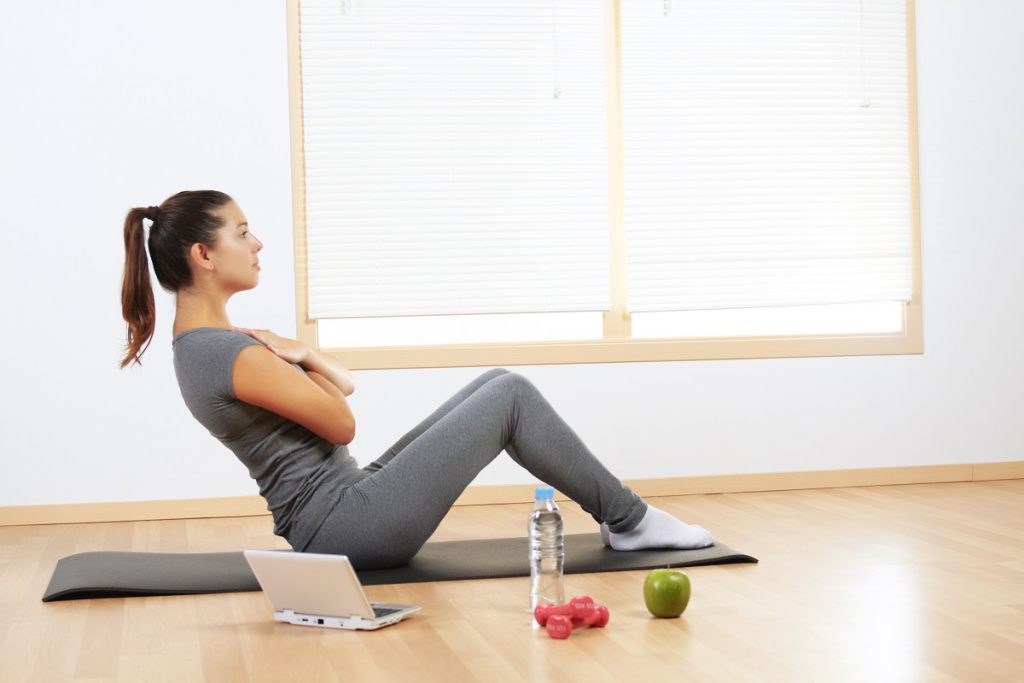The latest fitness trends and statistics portray an interesting dynamic. On one hand, according to the US Department of Health & Human Services, over 80% of adults and adolescents don’t meet the guidelines on sufficient physical activity.
On the other hand, since the pandemic began, demand for fitness equipment has soared. Usage of fitness apps and virtual classes has seen a similar spike. Athleisure has become the unofficial fashion trend of the lockdown era.
This tells us an aspirational story. Many people want to become fit and have probably tried in the past, one way or another. It’s just that those attempts tend to fall short of the goal.
The problem a lot of people encounter is that fitness is actually not just a physical endeavor. It requires strength of mind as well. And activities to boost your self-awareness will provide the foundation of mental activity you need to build upon.
The benefits of self-awareness
How often have you gone about an entire day without contemplating the inner self? It’s definitely possible to experience things, have feelings, and act on a whim. For some, that can actually be their default state.
In psychology, self-awareness stems from the idea that you are a thinking entity, separate from your thoughts. The more you focus attention on the inner self, the more you embrace this concept. Practicing self-awareness allows you to evaluate your behaviors against personal goals and standards of right or wrong.
Having heightened self-awareness holds several research-proven benefits. These include better decision-making skills, greater proactive behavior, and motivation to improve. With those things come further intangibles: raised self-esteem and well-being, better job performance, and the ability to see things from another perspective.
Clearly, exercising your self-awareness has its own merits. But what does it have to offer in terms of physical fitness?
Fitness without the ego

The desire to become physically fit is common, but our individual motivations can vary greatly. Some might want to lead a healthier lifestyle. But others might be caught up in the pursuit of superficial, even unrealistic goals: sculpting a six-pack, shedding fat in a hurry, or setting personal records.
The ego can be a powerful force when harnessed correctly, but it can also blind us to flaws and imperfections. This can have serious implications when we refuse to listen to our bodies. For instance, men might under-report fibromyalgia symptoms because doing so conflicts with the stereotypical masculine image of stoic suffering.
Self-awareness helps you avoid those mistakes. If you step aside and view your fitness goals in an objective light, you can realize which ones are out of reach at your current level. Stop pursuing them, and set more realistic ones. It will increase your motivation and reduce the risk of harm.
At the same time, you can tap into the effects of self-awareness to continuously adjust and correct what you’re doing. Being more attuned to your body’s feedback alerts you to imbalance and errors in form that could otherwise lead to injury.
With the ego in check, you’ll be in a better frame of mind to embrace the tedious, unglamorous work of improving your exercise fundamentals. And your awareness of how that translates to performance and fitness gains will further fuel your confidence, creating a positive feedback loop.
Techniques to try
Since self-awareness is a valuable skill across multiple aspects of life, people have devised various ways to practice and develop it. Some of these can be applied directly to your goal of becoming more aware in the domain of fitness.
For example, the benefits of meditation, reading and reflecting, or maintaining a journal are valuable on their own. But these can be further tied to your physical activity.
Meditate before and after a workout, and be more aware of how your body feels. You can then write those thoughts down in a fitness journal and develop ideas to try next time. Read books and studies on fitness and nutrition, and tailor their recommendations to your lifestyle.
A specific exercise to develop greater awareness is yoga. It requires a deliberate, mindful approach towards your practice, as you must follow a specific flow of asanas before attempting the more difficult ones.
Breath control is another physical exercise technique that can heighten your awareness. It’s often incorporated into yoga, but you can practice it as a standalone method. Visualize how the inhaled air flows to the muscles you wish to activate before proceeding with your workout.
Ensuring that your mind is strong and fully engaged can make exercise fruitful and self-sustaining and take strides towards your fitness aspirations.






